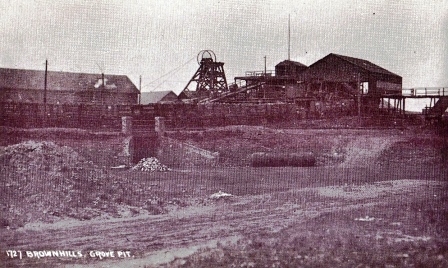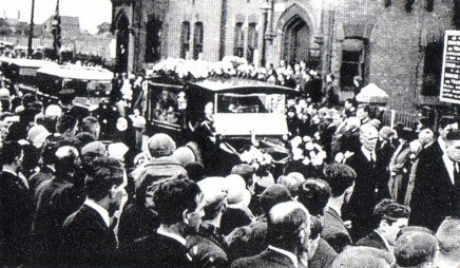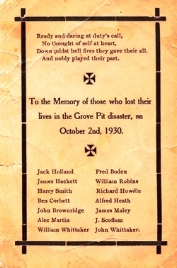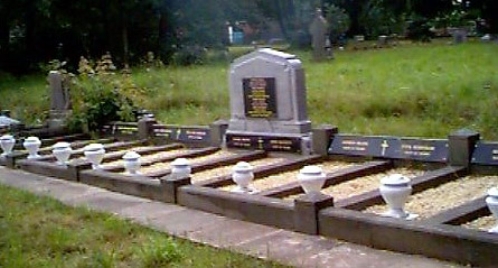Brownhills Grove Colliery Disaster
The Grove Colliery (Postcard A. Rawlins) The Grove Colliery plan 1920's
(BrownhillsBob's Brownhills Blog) (BrownhillsBob's Brownhills Blog)
At 09.18 on 1st October 1930, the most well known accident to have happened at a colliery in our vicinity, occurred at ‘The Grove Colliery’, on Wyrley Common, Brownhills, owned by William Harrison’s Brownhills Collieries Company, which was opened in 1857. A huge gas explosion took place one and a half miles below the surface in the underground workings, beneath the “Fleur De Lys” public house, when it is thought that a naked light was struck in a shaft.
“Fleur De Lys”
Ten of the fourteen men killed were buried together on the 7th October in a collective grave at Saint James’ Church Cemetery, Church Road, Brownhills. The cortege started at the Council Offices and made its way along High Street into Church Road and into the church. Many people lined the streets to pay their respects. The funeral cortege passing the Council Offices as they were at the time
The fourteen men killed were:-
BOWDEN, Alfred 49 BROWNRIDGE, John 34
CORBETT, Benjamin 52 HACKET, John 33
HEATH, Alfred 27 HOLLAND, John (Jack) 41
HOWDLE, David Richard 30 MALLEY, James 33
MARTIN, Alec 32 ROBINS, William 45
SCOFFHAM, John 50 SMITH, Harry 38
WHITTAKER, John Bernard 44 WHITTAKER, William 62
The funeral cortege (Cannock Chase Mining Society)
The men were laid to rest in Great Charles Street Graveyard in a communal grave divided into ten sections. They were afforded full military honours, as six of the men had fought in the First World War.
Having read our article on the Grove Colliery Disaster, Peter MILNER contacted the BFHG and provided us with a copy of a postcard to the memory of those who lost their lives. We are grateful to Peter
At 10.00 on Saturday 2nd October 2010 at Saint James’ Church, an 80th anniversary memorial service took place for the those miners who lost their lives in the ‘The Grove Colliery’ disaster, their descendants and their friends.
A full report on the accident and subsequent enquiry is held by the Coal Mining History Resource Centre







